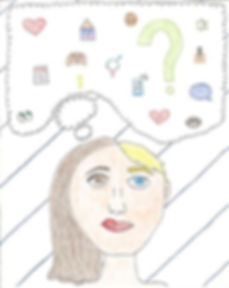
National Healthy Relationships/Sex Education Groups. JOIN NOW!
Testimonial Video
Maria Brandt, Executive Director
The Arc of Blair County, PA

QOL Curriculum
There is currently a lack of vital information being taught in public schools, especially within the special education programs to help individuals create and maintain healthy relationships. The QOL Curriculum aims to bridge that gap in knowledge and provide crucial information to those in need. In doing so, this program is aimed at preventing individuals with disabilities from becoming victims of sexual crimes or engaging in sexual offensive acts.
The multi-level educational approach, as well as the multi-modal delivery allows for information to be delivered at various levels of understanding to ensure no learner is left out.
Thorough and Valuable Content
16 chapters providing information for building healthy selves and forming healthy relationships, such as:
-
SOCIAL SKILLS
-
ASSERTIVENESS
-
SOCIAL MEDIA SAFETY
-
EXPRESSION OF FEELINGS
-
PUBERTY
-
AND MANY MORE

With sustained learning and positive behavioral changes being the ultimate goal for students, the curriculum incorporates pre/post tests and behavior data tracking to make certain the information is being understood and retained.
QOL Curriculum is suitable for groups of adolescents through adults, and for learners of varying levels including those with Mild Intellectual Disabilities, Autism Spectrum Disorders, Learning Disabilities, and those with more severe Intellectual Disabilities as well.

Innovative and Versatile
-
Fully accessible online allowing for this innovative curriculum to be updated and adapted to societal change over time.
-
Maintained by the authors behind the curriculum to:
-
ensure the educators are fully trained and
-
provide regular support as you navigate the lessons
-
-
This curriculum is versatile and able to be used by:
-
direct care staff
-
private practice therapists
-
schools (teachers, counselors)
-
day programs
-
behaviorists
-
criminal justice personnel
-
other professionals who work within the disability community.
-

